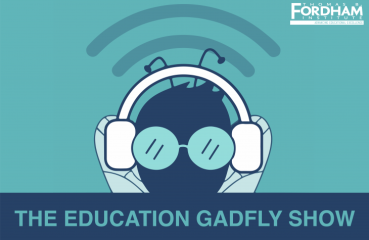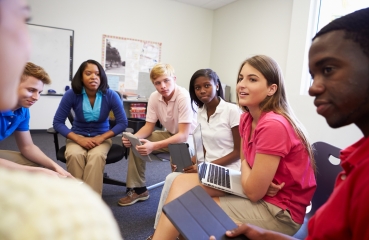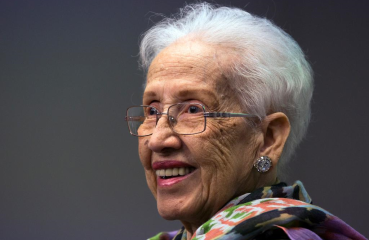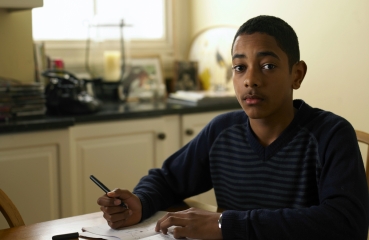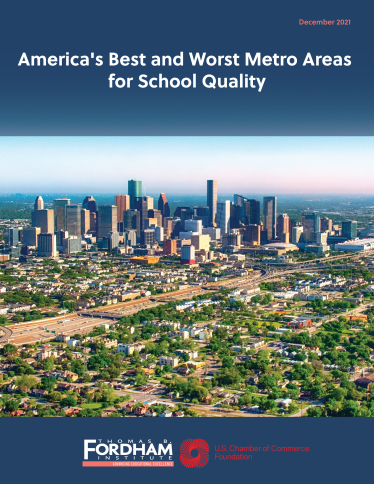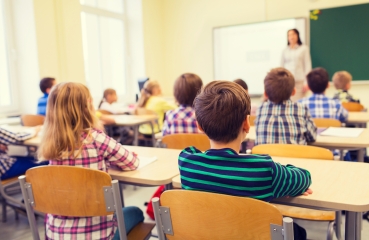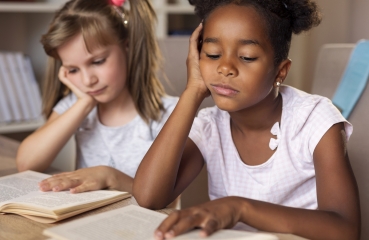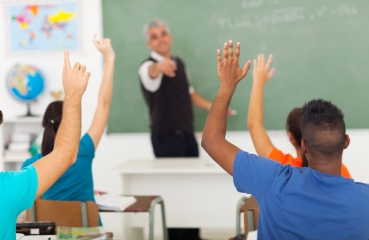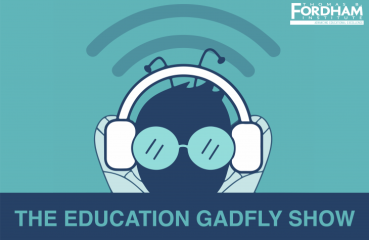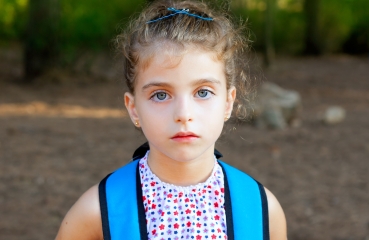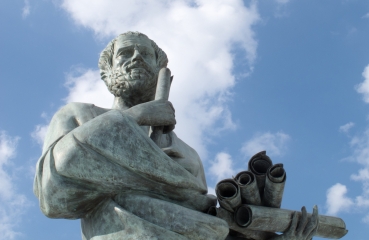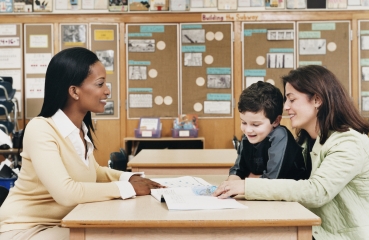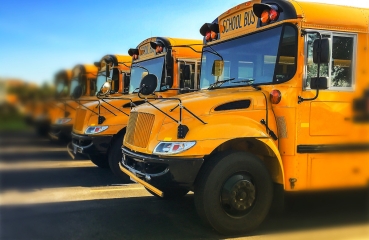Civility, democracy, and education
Jennifer FreyMost of our founding fathers believed that a democracy is only as good as its citizens, since democracy only flourishes with citizens who are capable of governing themselves. But we have lost our understanding of the connection between virtue, self-government, and democracy. Indeed, few students today learn anything about virtue, let alone see any connection between it and the fate of our republic.
The long road to education recovery: Three ways for districts to redeem themselves
Dale ChuThis school year was supposed to be the one when things returned back to normal. If only that were true.
Online courses and college degree completion
Jeff MurrayStudents’ inability to enroll in required courses—due to capacity or scheduling constraints—can stymie progress toward a college degree. New findings published in Educational Evaluation and Policy Analysis suggest that online courses can help keep students on track to college graduation.
Boosting the effectiveness of STEM role models
Jeff MurrayProviding relatable role models for young people is a guiding principle by which STEM practitioners hope to motivate scientists of the future and diversify their ranks. Conscious of the importance of this endeavor, New York University researchers Jessica Gladstone and Andrei Cimpian examined the literature on role modeling to identify strategies for maximizing its motivational impact.
Build Back Better’s risks on early childhood education are manageable and outweighed by the benefits
Elliot RegensteinThe funding system for early childhood education envisioned in Build Back Better is far superior to the one we have now. But as always in public policy, the transition from one condition to another is fraught with risks.
The best and worst metro areas for school quality may surprise you
Michael J. PetrilliFordham newest study ranks schools in the nation’s 100 largest metro areas, with heavy focus on academic growth. Many of America’s “superstar cities” appear far less super when examined through this lens. Some have a right to brag—but others would be well advised to stop resting on their laurels and work harder to improve all students’ progress.
Education’s enduring love affair with “luxury beliefs”
Robert PondiscioThe proof of a powerful idea is how well it sticks. Once you hear about it “you start to see it everywhere,” as Bari Weiss puts it. She was describing “luxury beliefs,” a phrase coined by Rob Henderson, an Air Force veteran and Ph.D.
Conservatives: Let’s focus on winning policy, not just winning politics
Karen NussleThere’s been lots of jabber lately about what the upset win by Glenn Youngkin in the recent Virginia gubernatorial race means for education policy.
Proof that online credit recovery has been on the rise
Adam Tyner, Ph.D.Recent years have seen a move to eliminate homework and relax grading standards, and struggles by teachers and students to do their work during the pandemic have accelerated this trend. Some educators and commentators, however, fret that these new practices amount to lowering standards.
America’s Best and Worst Metro Areas for School Quality
Thomas B. Fordham Institute"America’s Best and Worst Metro Areas for School Quality" is the first analysis to use nationally comparative data to evaluate the effectiveness of large and mid-size metro areas on school quality. Use our interactive data tool to see how your metro area stacks up.
In defense of suspensions
Daniel BuckA student was arrested after an attempted stabbing at Montgomery Blair High School.
Education is progressive. Schools are conservative.
Robert PondiscioEditor’s note: This was first published by Newsweek.
Attacking gifted education is bad policy and bad politics
Brandon L. WrightEducation for high achievers has come under siege in blue cities and states as the national focus has shifted to racial equity in the aftermath of George Floyd’s murder. But such attacks, even when well-intentioned, are misguided. They target a problem’s symptom rather than its cause, and in doing so, harm students and defy parents.
Teaching gratitude beyond Thanksgiving
Jennifer FreyOnce a year, parents of young children can look forward to their kids coming home from school with turkeys drawn by hand and heartwarming lists of what they are grateful for, with loving parents and helpful teachers usually at the top of the list. This happens just before families pack up and travel to be together and give thanks for all the blessings of the year.
The centrality of instructional materials: My experience with Doug Lemov’s Reading Reconsidered Curriculum
Daniel BuckI’m a rather dreadful cook. Nonetheless, in the summer, with easy access to farm-fresh vegetables and the internet’s profusion of recipes, my wan table occasionally turns into something resembling a feast. And this phenomenon works in reverse.
Redesigning early college credit to reach underserved students
Jeff MurrayIn 2012, Tennessee lawmakers created the Statewide Dual-Credit program (SDC) to help more students earn college credit while completing high school.
The state of computer science education
Jessica PoinerIn early November, the Code.org Advocacy Coalition, the Computer Science Teachers Association, and the Expanding Computing Education Pathways Alliance teamed up to release the 2021 State of Computer Science Education.
Education Gadfly Show #797: Why debunked reading practices continue to spread
Stop pestering education leaders to “follow the evidence.” Instead, host forecasting tournaments.
Mike GoldsteinEducation leaders—principals, superintendents, state chiefs, philanthropy heads—make lots of decisions, and we exhort them to “use evidence” when they do. But we should stop doing that for at least four reasons.
Teacher mental health days demonstrate districts’ priorities—and it’s not the students
Dale ChuAmerica’s children are way behind because of the pandemic. And knowing this, parents and guardians have been justifiably expecting schools to rise to the occasion this fall. Instead, districts across the country have been shuttering this month following a wave of unexpected staff shortages. This is unequivocally a bad thing, but one that may have a silver lining: It helps increase momentum for school choice.
What is virtue and why does it matter?
Jennifer FreyContemporary education has become too technocratic and divorced from virtue. This is a disservice to students because it robs them of what a classical education provides: the tools students need to succeed, not just academically and professionally, but in the deep and abiding sense of being able to flourish as free and good human beings.
In almost every state, funding gaps between rich and poor schools have been closed
Adam Tyner, Ph.D.The conventional wisdom is that American students from poor families are mostly stuck in sorely underfunded public schools while more affluent families have access to well-resourced ones. For decades, this was largely true.
Communicating the “learning” in social-emotional learning
Sheldon Berman, Linda Darling-HammondEditor’s post: This post was originally published on November 8, 2021, by the Learning Policy Institute as part of its “Educating the Whole Child“ blog series.
The fall of the yellow-school-bus system requires swift modernization
Matthew Ladner“How did you go bankrupt?” Bill asked. “Two ways,” Mike said. “Gradually and then suddenly.” —Ernest Hemingway, The Sun Also Rises
Effectively implementing social-emotional learning means getting the terminology right
William Rost, Jeremy SmithTwo charter networks, Uplift Education and Distinctive Schools, have provided models for supporting social-emotional learning (SEL) that other schools should emulate.
How media coverage of critical race theory misses the point
Robert PondiscioIt is not a controversial statement to say that the debate over critical race theory in schools has shed more heat than light. This is not surprising. When a relatively obscure and arcane academic field suddenly becomes a high-profile political football, hotly debated on cable news shoutfests, it is almost certainly because it has been reduced to bumper-sticker simplicity.
A descriptive look at the structure of gifted programs in Washington State
Amber M. Northern, Ph.D.Gifted education has been a much-debated issue
Would eliminating college admissions tests really make education more equitable?
Adam Tyner, Ph.D.When the University of California began phasing-out college admissions test scores as part of a recent legal settlement, the rationale was “equity.” Lawyers for the students who brought the lawsuit said that “SAT and ACT scores are largely a proxy for a student’s socioeconomic background and race,” rather than measures of ac
Want your kids to thrive in school? Call the pediatrician.
Tim DalyThe pandemic has provided a stream of unsettling headlines reminding us that our kids are not OK. They have grappled with surges in loneliness, anxiety, and depression.
